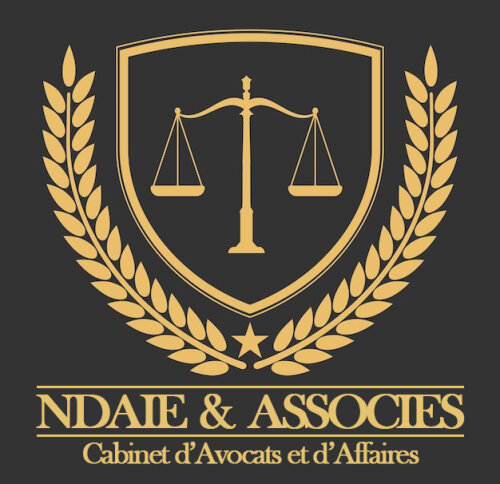Best Tax Increment Financing Lawyers in Lubumbashi
Share your needs with us, get contacted by law firms.
Free. Takes 2 min.
List of the best lawyers in Lubumbashi, DR Congo
About Tax Increment Financing Law in Lubumbashi, DR Congo
Tax Increment Financing (TIF) is a public financing method used for subsidizing infrastructure and community-improvement projects in certain areas. In Lubumbashi, DR Congo, TIF is employed to encourage economic development, urban renewal, and infrastructure enhancement. By capturing the future increases in property tax revenues generated by rising property values, TIF helps finance improvements that can attract new private investments in the designated areas.
Why You May Need a Lawyer
Engaging with Tax Increment Financing can be complex due to the nature of local regulations and the financial implications of these projects. You may require legal assistance in the following situations:
- Understanding the eligibility criteria for TIF in Lubumbashi.
- Navigating the application process for TIF funding.
- Negotiating terms and conditions with local authorities or development agencies.
- Ensuring compliance with local laws and regulations related to infrastructure development.
- Dealing with disputes or legal challenges arising from TIF projects.
- Advising on the potential financial liabilities associated with TIF agreements.
Local Laws Overview
The legal framework governing TIF in Lubumbashi involves several key aspects:
- Eligibility and Designation: Specific criteria must be met for an area or project to qualify for tax increment financing. This often involves demonstrating the need for economic revitalization or infrastructure improvement.
- Financing and Repayment: TIF projects are typically financed through bonds or loans, which are repaid using the projected incremental tax revenue generated by the improved property values in the designated area.
- Public Participation: Local laws may require community involvement and public hearings to ensure transparency and public support for TIF projects.
- Oversight and Management: Local development authorities may oversee TIF projects, ensuring they meet stipulated objectives and managing funds as per legal agreements.
Frequently Asked Questions
What is Tax Increment Financing (TIF)?
TIF is a financing mechanism that captures future increases in tax revenues from an area designated for development to fund current infrastructure and improvement projects.
Who can apply for TIF in Lubumbashi?
Typically, municipalities, developers, and businesses focusing on revitalization and economic development within designated areas can apply for TIF.
How is tax increment determined?
The increment is calculated based on the increase in property tax revenues compared to a baseline amount established when the TIF district is created.
What types of projects are eligible for TIF funding?
Projects involving infrastructure improvements, commercial development, housing redevelopment, and other public amenities may be eligible for TIF funding.
How does TIF benefit a community?
TIF can stimulate economic development, create jobs, and rejuvenate areas needing improvement, ultimately increasing the overall property value in the district.
Are there risks associated with TIF?
Yes, risks include insufficient tax increment to cover the debts, potential legal disputes, and adverse economic conditions that lead to project failures.
What is my financial liability in a TIF agreement?
Your financial liability will typically be based on the specific terms negotiated in the TIF agreement, which may involve repayment schedules and commitments.
How long does a TIF district last?
The duration of a TIF district varies but often ranges from 15 to 30 years, depending on project goals and local legislation.
Can TIF funds be used for private developments?
TIF funds are primarily intended for public infrastructure or improvements leading to public benefit, although private developments can benefit if they align with these goals.
Who oversees TIF projects?
Local government authorities or designated development agencies usually oversee the management and implementation of TIF projects.
Additional Resources
Consider reaching out to the following resources for further assistance on TIF in Lubumbashi:
- Local Government Offices: These offices can provide information on TIF districts and requirements for project proposals.
- Ministry of Urban Planning and Housing: Offers guidance on compliance with urban development regulations.
- Local Development Agencies: These agencies can assist in navigating the TIF process and offer insights into successful project execution.
- Legal Firms Specializing in Urban Development: Offer expert legal advice on all aspects of TIF agreements and compliance.
Next Steps
If you require legal assistance with TIF, consider the following steps:
- Identify Your Needs: Clearly understand your project's scope and what legal assistance you might require.
- Consult with Experts: Reach out to legal professionals specializing in urban development and TIF to obtain advice specific to your circumstances.
- Gather Necessary Documentation: Compile relevant documents, project plans, and financial projections required for legal and administrative processes.
- Engage in Discussions: Meet with local authorities and stakeholders to discuss your project and seek clarity on any uncertainties.
- Proceed with Filing and Compliance: Follow the necessary legal steps to file your application for TIF and ensure compliance with all local laws and regulations.
Lawzana helps you find the best lawyers and law firms in Lubumbashi through a curated and pre-screened list of qualified legal professionals. Our platform offers rankings and detailed profiles of attorneys and law firms, allowing you to compare based on practice areas, including Tax Increment Financing, experience, and client feedback.
Each profile includes a description of the firm's areas of practice, client reviews, team members and partners, year of establishment, spoken languages, office locations, contact information, social media presence, and any published articles or resources. Most firms on our platform speak English and are experienced in both local and international legal matters.
Get a quote from top-rated law firms in Lubumbashi, DR Congo — quickly, securely, and without unnecessary hassle.
Disclaimer:
The information provided on this page is for general informational purposes only and does not constitute legal advice. While we strive to ensure the accuracy and relevance of the content, legal information may change over time, and interpretations of the law can vary. You should always consult with a qualified legal professional for advice specific to your situation.
We disclaim all liability for actions taken or not taken based on the content of this page. If you believe any information is incorrect or outdated, please contact us, and we will review and update it where appropriate.











